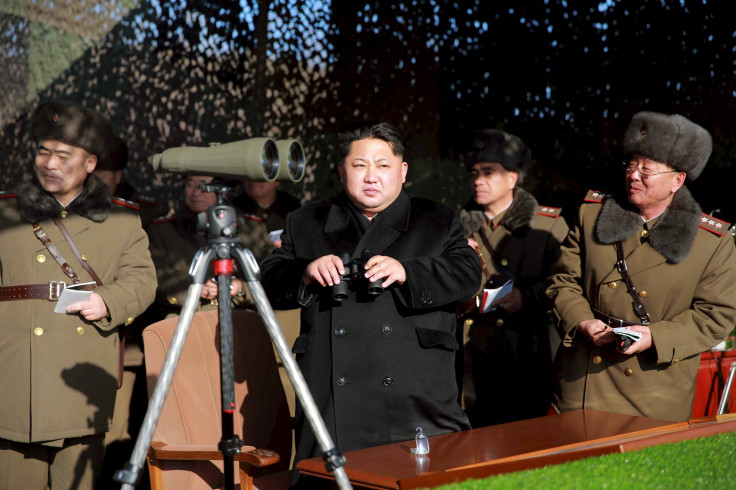Where Did North Korea's Nuclear Weapons Come From? How The Korean War Shaped A Nation

Claims by North Korea that the country successfully carried out a hydrogen bomb test Wednesday led immediately to worldwide condemnation, skepticism and questions about the nation’s nuclear program. While the test would be North Korea’s fourth test in 10 years if the news is accurate, the history of the North’s nuclear weapons program can be traced back to the country’s founder, Kim Il Sung, the New York Times reported.
Kim, the grandfather of North Korea’s current leader Kim Jong Un, started the country’s nuclear program during the Korean War, which ran from 1950 to 1953. The project came together at a time when Kim knew that Gen. Douglas MacArthur was asking Washington, D.C., for permission to use nuclear power against both North Korean and Chinese troops during the war.
Fast forward 30 years to when American satellites captured images of the Yongbyon Nuclear Scientific Research Center, a major nuclear facility, coming together. By 1994, leaders in the U.S. and North Korea negotiated a deal to freeze some of North Korea’s nuclear programming, as relations grew tense between the eastern and western nations, the Times reported.
By 2002, the deal had fizzled after George W. Bush’s administration alleged that North Korea wasn’t faithful to the deal’s agreements. Four years later, North Korea conducted a nuclear test. While small, the later tests were more successful.
The hydrogen bomb is typically considered more powerful than the atomic bomb — used by the U.S. on Hiroshima and Nagasaki in Japan in World War II — partly because of the process by which it explodes, CNN reported. Atomic bombs, which killed more than 200,000 people in Japan at the end of World War II, use fission, which splits plutonium into small atoms.
The hydrogen bomb, however, uses fusion, which combines smaller atoms, such as hydrogen. This creates a much bigger blast, thought to be thousands of times more powerful than the atomic bomb.
Did North Korea detonate a hydrogen bomb? Here’s what we know https://t.co/IZWhTmOB5v pic.twitter.com/wQ3mmLDkqH
— The New York Times (@nytimes) January 6, 2016
The size of North Korea’s supposed blast is what has cast doubt in many over whether the explosion was that of a hydrogen bomb. "The bang they should have gotten would have been 10 times greater than what they're claiming,” Rand Corporation defense analyst Bruce Bennett told the BBC.
"So Kim Jong Un is either lying, saying they did a hydrogen test when they didn't, they just used a little bit more efficient fission weapon — or the hydrogen part of the test really didn't work very well or the fission part didn't work very well,” he went on to say.
© Copyright IBTimes 2024. All rights reserved.




















